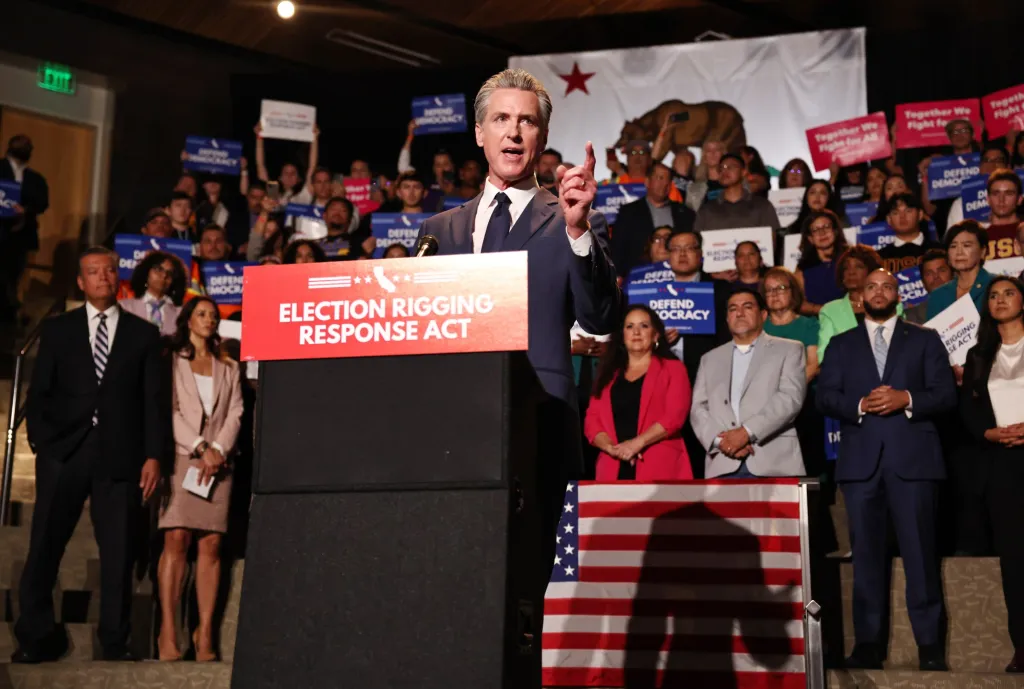
In his farewell address published Sept. 17, 1796, President George Washington warned, “[p]artisanship is like a fire not to be quenched, it demands a uniform vigilance to prevent its bursting into a flame, lest instead of warming it should consume.”
Are we seeing in today’s “gerrymander war” the reality of President Washington’s fear?
Democrats and Republicans agree gerrymandering threatens representative democracy. Nevertheless, both parties have done it and are now in the midst of a “gerrymander war.” It is the political equivalent of mutual assured destruction, in this case destruction of our democracy.
Gerrymandering involves redistricting legislative boundaries to affect the power of groups. It has been used to enhance political power, defeat candidates, split communities and dilute minority votes. In discussing gerrymandering, a state senator once proclaimed, “we are in the business of rigging elections.”
Political operatives know voters within communities of interest (geographic, economic, racial, etc.) tend to vote similarly, often as voting blocs. If communities of interest remain within a district, they can have a significant impact on which candidate wins.
On the other hand, an otherwise strong voting bloc can be marginalized by splintering its voters among several districts, thereby diluting its impact.
The first gerrymandering occurred in 1811 when Massachusetts Gov. Elbridge Gerry — a Declaration of Independence signer and future vice president — approved a controversial redistricting map that changed the legislative district boundary in a way that gave his party’s candidate a substantial advantage. Since the new district looked like a salamander, political cartoons called the practice “gerrymandering.”
For 100 years following the Civil War, gerrymandering was used to marginalize Black voters. Finally, in 1965, the Voting Rights Act put an end to diluting the voting power of racial minority communities through gerrymandering. It did not, however, ban gerrymandering for partisan purposes.
Although gerrymandering has long been used for partisan political purposes to some degree, this practice has increased over the years to the point of today’s “warfare.”
Proposition 50 on the California special election ballot in November is at the center of the gerrymander war. The proposal would amend California’s Constitution to bypass the state’s independent redistricting commission and adopt a gerrymandered congressional map that would favor Democrat candidates.
Democrats justify this gerrymandering by claiming it would offset the Republicans’ gerrymandered congressional district map in Texas. Of course, Texas Republicans justified their gerrymandered map as an offset to a Democrat gerrymandered map in Illinois, and so on.
Left unchecked, gerrymandering will seriously damage representative democracy through manipulation of voting power. Yet the courts will not step in unless the gerrymandered district results in dilution of a racial minority voting bloc.
What can we do to stop this destructive practice?
One way suggested is to eliminate congressional districts and elect members at-large. This is a creative solution, but its effect would cement a statewide majority voting bloc while eliminating districts where minority groups and other communities of interest can elect representatives. Like gerrymandering, it would stifle representative democracy.
An alternative that has had some success is establishing independent commissions that conduct redistricting through public hearings. These commissions are typically selected and run in ways that insulate them from politicians. Given the California maneuver, however, the only way to ensure independent commissions are not bypassed would be to amend the U.S. Constitution to require them and set out a clear process. That would take years to achieve.
The quickest way to stop the gerrymander war is to simply follow President Washington’s advice: Exercise “uniform vigilance.”
Voters of both parties should set aside their own partisanship and recognize the destructive power of gerrymandering. Be vocal and clear that politicians who support gerrymandering are not supporting democracy and should find other work. The power of public opinion should not be underestimated, particularly when coupled with casting votes accordingly.
Meanwhile, begin the process of amending the U.S. Constitution to require state independent commissions.
Setting congressional boundaries should not be used to rig elections. Boundaries should emphasize factors such as compactness of the district, contiguous neighborhoods, preservation of communities of interest and substantially equal populations. Using these factors would help ensure we can elect true representatives.
A gerrymander war threatens our democracy. It is up to us to stop it.



